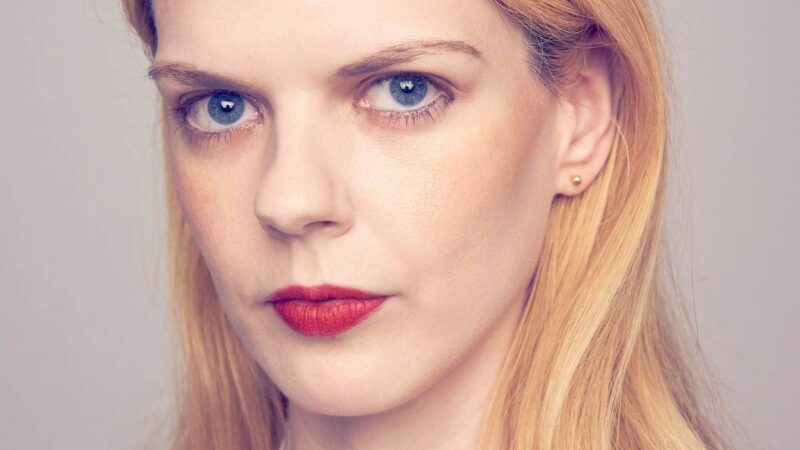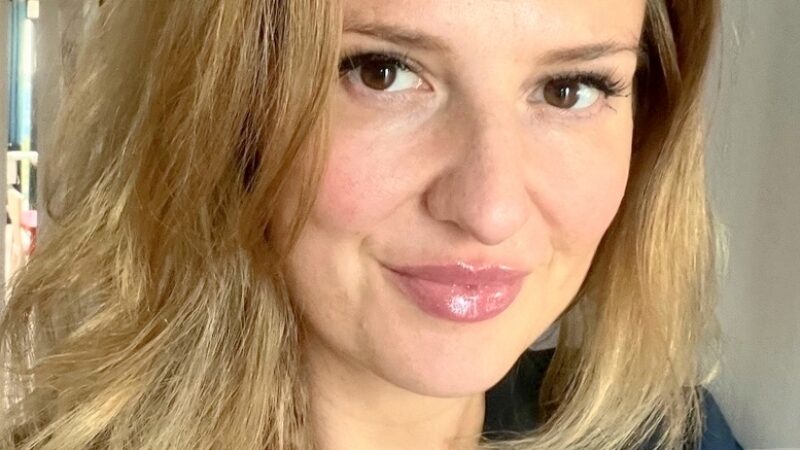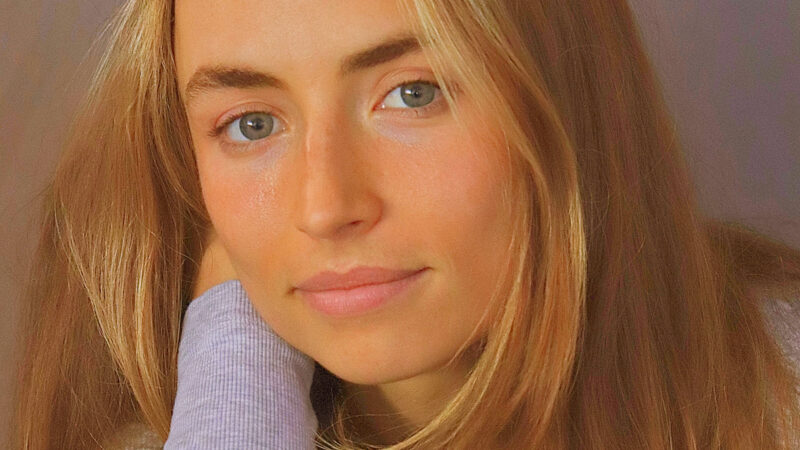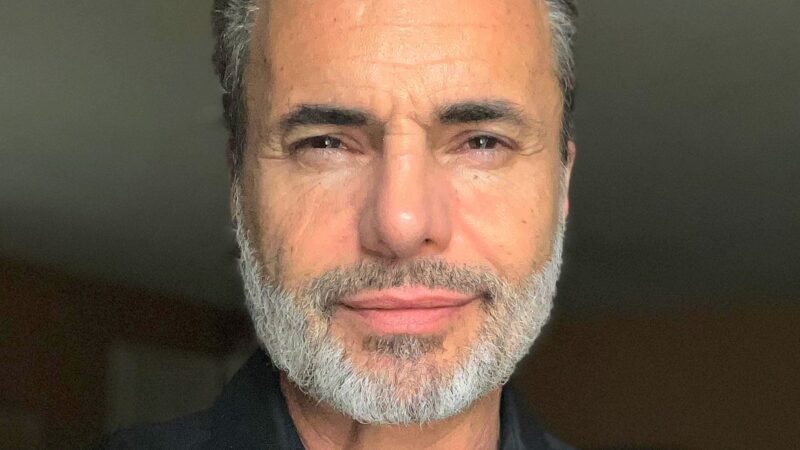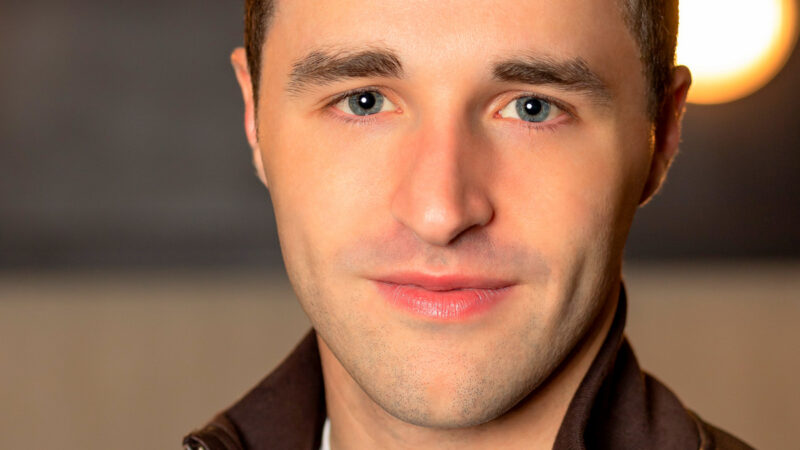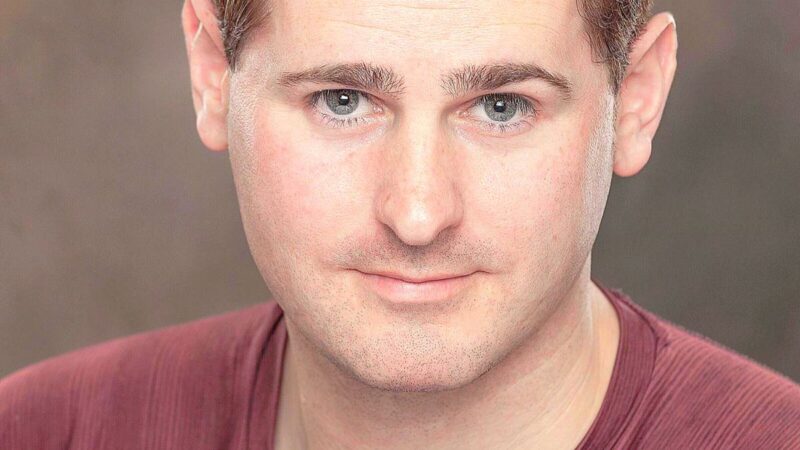
Written by Eleni Giannakidou in Greek language
– published in Kulturosupa Nov. 11, 2023
– what follows is its English translation
With Bruno Pischiutta, one of the great directors of his generation. He has a remarkable body of work to his credit. And a recent member of the European Film Academy. Also, Daria Trifu, acclaimed producer, and director of Global Nonviolent Film Festival. We chat under the shadow of the Pieria, in idyllic Greece. Where in a few months one (1) of three (3) films of Pischiutta’s anticipated film project tentatively titled The Trilogy will be shot.
I admit that I am lucky, equally excited, and a little embarrassed. Because I have Bruno and Daria in front of me and they immediately accepted my interview for a lot of questions. The questions and queries are so many that I’m dividing the interview into two parts. So, that I and all cinephiles reading this article can get as much information as possible about these two important people of Art.
I start immediately by asking questions to Bruno Pischiutta. Then I will continue with Daria Trifu. Thus gaining a complete picture of their lives and careers in cinema and beyond.
Dear Bruno, tell us about your first steps in cinema as an actor, and your first important collaborations?
Bruno: I started my career in theatre in the early 1960s in Udine. Where I produced, directed and acted in a recital of William Shakespeare’s poems and monologues. In 1962 I produced, directed and performed in a recital of poems and lyrics by Bertolt Brecht.

Back in 1963 I performed in La Pesca, a drama by Eugene O’Neill. In 1964 I performed in a drama by Father David Maria Turoldo, “Quando LaTerra E’ Madre”, staged in Udine at the Monumental Church of San Francis. In 1965, at the age of 18, I played in “Pentecost”. Another Turoldo drama, staged at the Velodromo Vigorelli in Milan and performed in front of an audience of 9,000 people. I had the honour of playing before Cardinal Giovanni Montini, who a few months later, became Pope Paul VI.
In 1965 I moved to Trieste where I graduated from the Institute of Dramatic Arts and became a professional actor. Then in Trieste I worked as an actor in theater and for RAI radio while I studied philosophy at the University of Trieste. In 1966, I auditioned and was accepted as an actor in the Italian theatre group of the Narodno Kazaliste Theatre in Rijeka, in the former Yugoslavia.
In the late 1960s, American film production companies began to abandon Italy as their preferred location and started shooting in Croatia. There, I was selected as an actor in films produced by Columbia Pictures, Dino De Laurentis Productions and several others. As a professional film and theatre actor, I had the opportunity to work with great directors like Nanni Loy, and Francesco Rosi. Some great actors like Nino Manfredi, Martin Landau, Jason Robards and Peter Falk, Oscar-winning director of photography Pasqualino DeSantis and others.
I was cast in “Rosolino Paternò, Soldato…” (1970), directed by Nanni Loy, with Nino Manfredi, Jason Robards and Peter Falk. I also took part in the Hollywood Studio production of “Many Wars Ago” (1970), directed by Francesco Rosi, with Mark Frechette, Gian Maria Volontè and Pier Paolo Capponi. In this film I played in a scene next to Alain Cuny, the great French actor who appeared as an organist in Fellini’s “La Dolce Vita”.

In 1972, at the Venice Film Festival, I received the Critics’ Award for Best Supporting Actor for my performance in “Many Wars Ago”. After that film award, I went to Milan and had a very successful audition with Dario Fo who hired me. Dario Fo, later, as is well known, got the Nobel Prize for Literature.
Could you describe your career in directing and producing films? (difficulties and happy moments you faced until you became recognizable to the general public)
Bruno: My film career, as I mentioned before, started in Croatia in 1970. At first I did very small roles in films of big Italian and American production, then in 1970 I made the film “Many Wars Ago”, directed by Francesco Rosi, which won me the Critics’ Prize at the Venice Film Festival.
I continued to work in theatre and from ’77 to ’82 I wrote screenplays but also produced and directed four films in Italy. The first one, which was a very controversial film with a political background, made me famous in a week all over Europe, while the last one won an award at the New York Film Festival and brought my reputation to an international level.
At that point I decided to go to North America and specifically Canada, because I knew it was the right time. I have never regretted this choice because I believe that my European background, integrated with everything I learned about American film production and also about the American banking system, made me unique and benefited me.

My first films in Italy had existential themes. The films I made later in Canada and America were mainly medical subjects but always connected with the social element. Issues like bulimia, drug addictions and unexplained teenage suicide are social issues that, when not dealt with properly, become medical issues.

Being famous in the Italian cinema of those years was not easy, nor was settling in America, where I arrived at the age of 36. Clearly, the work and career of a director often presents great problems that carry over into private life. I’m not complaining about my choices. I have always tried to make something good, of high quality and think more about making films that will stimulate attention and stimulate the minds of the audience about social issues, rather than pursuing success and money. I think I left Italy at the right time and I don’t regret it.

What I can say about this career is that I have traveled most of the world, in Europe, America, China and Africa, I have been lucky enough to learn many things, live interesting situations and, throughout the years, I have always been surrounded by great talents, actors, musicians, directors and writers.
Recently, you became a member of the European Film Academy. What are your feelings as an award-winning and renowned filmmaker to be part of this Academy?
Bruno: I am very happy that now, as my time is coming to an end, I was welcomed by the European Film Academy as a director, and I hope that Daria and the Global Nonviolent Film Festival will soon become members too. Together with the greatest film talents in Europe I will do everything I can now and in the future to help the European Film Academy.



How did your collaboration with Daria Trifu come about? Do you think it was an important milestone in your life?
Bruno: When Daria immigrated to Canada with her family and came to Toronto, she sought the best way to get into show business. Film was what she wanted to do and was one of the main reasons for her migration to Canada. Daria, therefore, visited a few local talent agencies in Toronto until one of those agencies referred her to me.
That’s how I met Daria Trifu who was then 18 years old. After a short audition and a long interview, I accepted her as a student at the International Film Workshops I held that year in Toronto.
Daria therefore had the opportunity to demonstrate her excellent education and culture and, after years of studying at art school, her artistic temperament. She graduated at the end of the Workshop and, immediately afterwards, began working with me at the company I was running at the time: Toronto Pictures.
In those early years, I taught her everything I could, and traveled extensively with her in the US and Europe. Daria organized the attendance at major festivals for the company and I arranged for her to be present at many meetings I had with business people, lawyers, accountants and important entertainment people. Within a few years, Daria was primed to the point of producing “Punctured Hope” with me in Africa on a $5.8 million budget and became one of the youngest film producers in North America.

Two years later she, who had by then become a vice-president, took Toronto Pictures public. In little more than a month, the stock price shot up from 5 cents to $1.40 bringing the company’s market value to $140 million.

Our partnership continues to this day. We complement each other: she’s a woman, I’m a man, she’s young and I’m old, she has an excellent ability to analyze details, while I can often see the big picture. This reality ensures that our decisions are almost always extremely balanced and we continue for years to learn from each other.
After many years of working together, I can say that our partnership has been so pivotal in my life and career that I can’t even imagine what my world would be like without it.
It has become known that you are in preparation for your new film project tentatively entitled “The Trilogy” consisting of three films, one of which we even learned that will be shot in Greece. Tell us about this project!
Bruno: The leading role in the film project will be played by British actress Stephanie Tripp, who is the absolute star of all three films.

What I can tell you today about these films is that the story of the first film starts in France and centers on the lead character played by Tripp. At the end of the first film, the protagonist decides to take a month’s holiday in Greece. The second film will be shot entirely in Greece and will allow us to follow her story. The third film will deal with the protagonist’s return to Nice and will conclude the Trilogy.
The protagonist of the films will spend her Greek holidays in a beautiful resort located near the beach and including a gym and spa. During this time, she will meet other couples who are spending their holidays in that area. They are mostly foreign tourists and middle class Greeks. So, we will see how they evolve in different ways and how different relationships develop today.
The films that make up the Trilogy will be very important and positive for the LGBT community, and apart from freedom of speech, they will also touch on many situations and events of our time concerning the sexualization of children, Satanism and pedophilia.
There will be two ways to understand this film work: the easiest and most popular way will be to follow the course of the love affairs that take place because a very particular morality can emerge, but there will also be a much more sophisticated way of reading the plot.
Where did your inspiration for “The Trilogy” come from?
Bruno: I can’t really answer that question, because the films are inspired by the work of an extremely controversial genius writer of the past. Once revealed, the author’s name alone will guarantee worldwide audience interest in “The Trilogy”. For marketing reasons, this author’s name will not be revealed until the start of the multi-million dollar promotional campaign that will precede the release of the films. To date, even the principal actors who will play in the films that make up “The Trilogy” do not know the name of this author.
Why did you choose Greece to shoot the second film of “The Trilogy” and how did the geography, the history, the landscapes, and the Greek social reality influence the thoughts of the producers?
Bruno: The reasons for deciding to shoot in Greece are multiple. In one sense, since the protagonist is going on vacation, why not choose Greece? Although this is not a landscape film. Greece offers great sea views and the whole Greek summer is a magical experience.
Then there are other reasons to consider: personally. I’m very happy to be able to shoot my films in places I know. I have visited Pieria many times in the last few years. And I know the locations and the people very well, which gives me a great advantage.
I am also happy to bring part of the film industry here, because this industry is always location friendly. It’s not an industry that brings pollution. On the contrary, it always showcases the main locations where the films are shot. I am also very happy that I bring good paying jobs to those involved in filming and bring in revenue to hotels, restaurants and general infrastructure.
The other main reason I chose Greece is not for the touristic beauty or anything like that, but because I consider this place one of the last possible paradises to live in. Clearly there are different kinds of issues here as well, but there is always a consistent quality of life and freedom here that is hard to find in North America or other places today.
Who are your protagonists in “The Trilogy” and what criteria did you use to select specific actors?
Bruno: It is not easy to answer this question, since there are 70 actors in “The Trilogy” and each of them has a specific and important role. The age of the characters varies from 11 to 65. Also, there is no formula for choosing the actors you need in a job like this, but I have to say that I’m always thinking about potential actors for a particular part as I’m writing. I also try to make sure that I can give key roles to actors I know, who I have already worked with and who have proven their abilities.
We conclude Part A of the interview by asking Bruno the last question: READ PART B

What is Bruno Pischiutta’s biggest ambition after the expected success of “The Trilogy”, and he answers:
Bruno: I wrote recently that when you’re old, memories are the most important thing in your life, because they’re all you have. When you die, your legacy is the most important thing, because it’s what you leave behind…
The above quote, I have it as my first thought in life and I wish that younger people have this thought about the legacy they will leave behind to others , their posterity… I wish that I have a few more years of life ahead of me and good health so that I can at least make one film a year and show through it what I have not yet been able to express.
When I asked Bruno earlier about Daria Trifu, he said that “after many years of working together I can say that our collaboration has been so pivotal in my life and career that I can’t even imagine what my world would be like without her”. On this note, I eagerly address my questions to Daria, a beautiful, young, multi-talented woman who smiles alongside Bruno, as she starts to answer with a pleasant mood about dance, painting, acting, art, documentaries and of course about the Global Nonviolent Film Festival that took place last month with a huge participation of films from all countries of the world!
Tell us what you think of the Interview with Bruno Pischiutta and Daria Trifu: Great Creators Shooting in Greece Past A. What do you think of it? What ideas did you get? Do you have any suggestions? Or did it help you? Let’s have your comments below and/or on Facebook, Instagram, or Twitter.
Socials
Website
IMDb
LinkedIn
Vimeo
FILMMAKER INTERVIEWS

